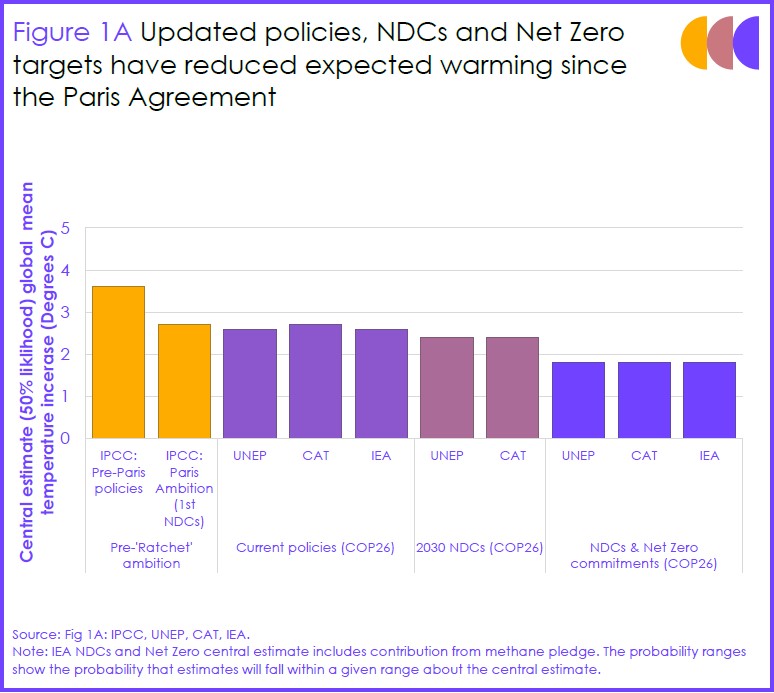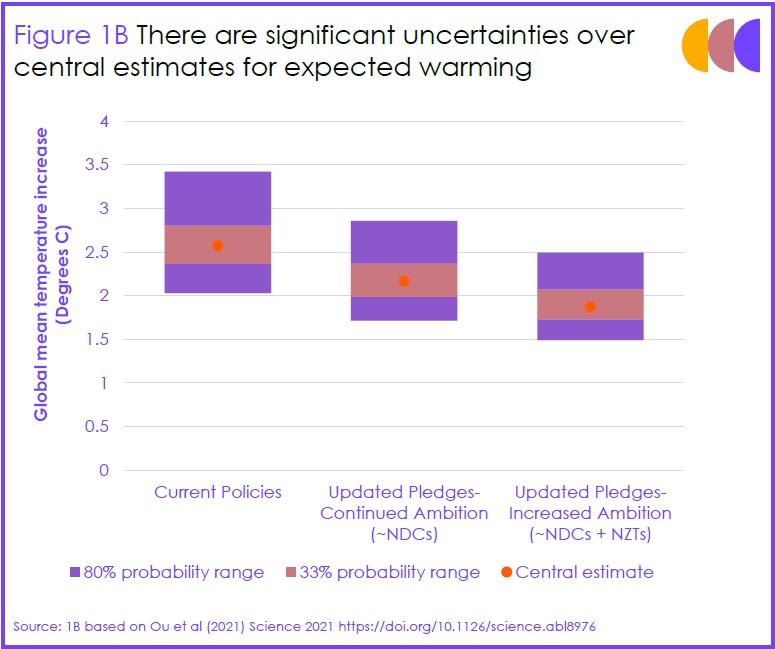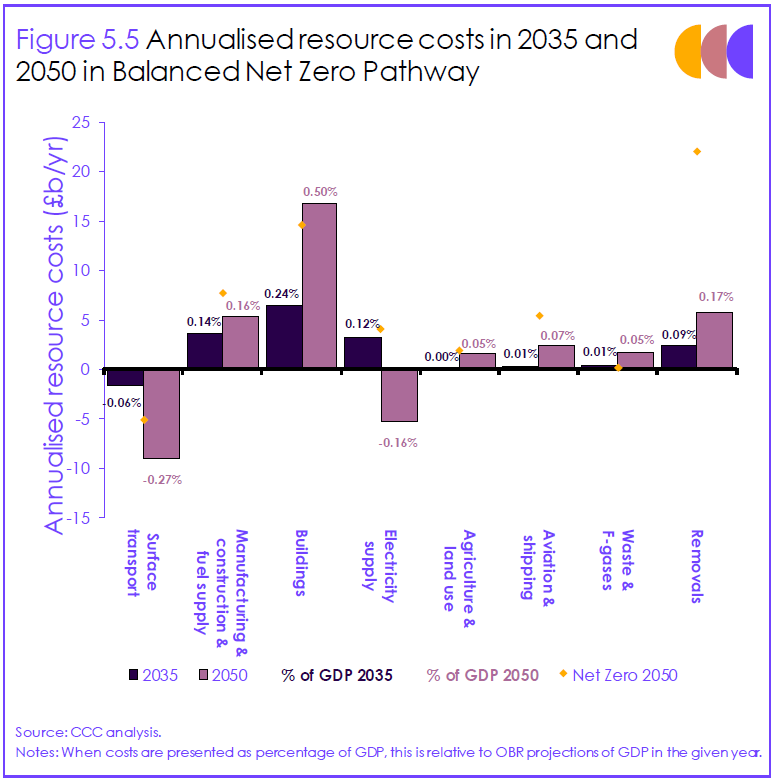
Here's our assessment of #COP26 and the Glasgow Climate Pact.
theccc.org.uk/publication/co…
We've taken a global outlook and considered the implications for the UK.
After Glasgow, there are important new considerations for UK climate policy. The UK must not walk away now.
@theCCCuk
theccc.org.uk/publication/co…
We've taken a global outlook and considered the implications for the UK.
After Glasgow, there are important new considerations for UK climate policy. The UK must not walk away now.
@theCCCuk
COP26 is clearly a step forward. Equally clearly, it didn't halt climate change.
A realistic assessment is that the UN process is making progress, but not enough (yet). How far COP26 can be considered a success depends on actions in the next year and beyond, in response to it.
A realistic assessment is that the UN process is making progress, but not enough (yet). How far COP26 can be considered a success depends on actions in the next year and beyond, in response to it.
The key metric of progress is expected warming. Prior to Paris (2015) there was expected warming of 3.6°C. After Glasgow the expected temperature rise is around 2.7°C. Views will vary on whether that is good progress.
But, crucially, lower temp outcomes are now in reach.
But, crucially, lower temp outcomes are now in reach.

Just under 2°C might be achieved.
But only if *all* the ambition in the national 2030 targets is delivered and only if mid-century Net Zero targets are also delivered (and applied to all greenhouse gases not just CO2).
Current policies globally won't deliver these targets.
But only if *all* the ambition in the national 2030 targets is delivered and only if mid-century Net Zero targets are also delivered (and applied to all greenhouse gases not just CO2).
Current policies globally won't deliver these targets.

So it's crucial that the Glasgow Pact has acknowledged the harm of additional warming and “resolves to pursue efforts to limit the temperature increase to 1.5°C”.
It makes the 2020s the critical period for accelerating action, encouraging parties to come back with more at COP27.
It makes the 2020s the critical period for accelerating action, encouraging parties to come back with more at COP27.
What does this mean for the UK? Some have called for a tougher UK 2030 NDC, for example.
In our view the UK already has one of the most ambitious 2030 emissions targets in the world, designed on a 1.5C pathway.
What the UK *doesn't* have is all the steps in place to deliver it.
In our view the UK already has one of the most ambitious 2030 emissions targets in the world, designed on a 1.5C pathway.
What the UK *doesn't* have is all the steps in place to deliver it.
So UK efforts should focus on strengthening delivery of the Net Zero Strategy, rather than inflating the gap between ambition and implementation.
Steps to complete the Strategy need to be brought forward, filling in the gaps we highlighted here.
Steps to complete the Strategy need to be brought forward, filling in the gaps we highlighted here.
https://twitter.com/ChiefExecCCC/status/1452892899289485316?s=20
The Glasgow Climate Pact refers to ‘phase-out of inefficient fossil fuel subsidies’. We think the UK has a duty to act on this, along with every other country.
There's no single definition of a 'subsidy, nor what constitutes an 'inefficient subsidy'.
But low carbon prices are effectively a subsidy. And no fossil fuel subsidies should be classed as ‘efficient’, given there are other ways to support vulnerable consumers with fuel bills.
But low carbon prices are effectively a subsidy. And no fossil fuel subsidies should be classed as ‘efficient’, given there are other ways to support vulnerable consumers with fuel bills.
So, in light of the Glasgow Climate Pact, we recommend that the Treasury reviews the role of the tax system in delivering Net Zero, including how higher and more consistent carbon prices can be achieved across the economy.
The UK's commitment to the Glasgow Pact can be further demonstrated with action on our consumption emissions. e.g. stronger product standards applied equally at home and on imports, carbon border adjustment mechanisms, trade levers, or encouragement of stronger corporate actions.
A strengthened UK NDC prior to COP27 could also include stronger plans on climate change adaptation, informed by a clear vision for a well-adapted UK and backed by quantitative targets.
Other options for strengthening the UK’s NDC include making it legally-binding; clarifying that emissions targets will be met without use of offsets; confirming a limited role only for CO2 removal; and including sector targets from the new Net Zero Strategy.
And what about the UK’s international role after COP26?
Well, let’s start by acknowledging that the UK Presidency actually *began* in Glasgow. We need to forge a strong relationship with the Egyptian Presidency that can secure crucial progress before Sharm el-Sheikh.
Well, let’s start by acknowledging that the UK Presidency actually *began* in Glasgow. We need to forge a strong relationship with the Egyptian Presidency that can secure crucial progress before Sharm el-Sheikh.
The Paris rulebook was completed in Glasgow - a great outcome. Now we need to put the rules into action, including consideration of whether the rules on international carbon trading might offer a new route for countries, including the UK, to support accelerated global ambition.
Key finance commitments were made at Glasgow. They need to be delivered transparently, including a doubling of funding for adaptation, and establishing a constructive dialogue on loss and damage.
The UK has an important role in seeing that through.
The UK has an important role in seeing that through.
The UK can also revisit its climate finance contributions, directing around half the finance to adaptation, and restore its commitment to spend 0.7% of GDP on aid as soon as possible.
And finally, what of 1.5C?
It’s still in play, but only just. It is slipping from reach.
The UK must maintain a strong COP team with high-level leadership through the duration of the Presidency.
Decisions in the coming year are critical to the chances of keeping 1.5C alive.
It’s still in play, but only just. It is slipping from reach.
The UK must maintain a strong COP team with high-level leadership through the duration of the Presidency.
Decisions in the coming year are critical to the chances of keeping 1.5C alive.
My thanks to the team @theCCCuk for all their work on this briefing. And for their contribution to #COP26 itself.
Particularly proud that we helped to establish a new network of similar climate advisory bodies around the world. Hope we can learn from their collective experience.
Particularly proud that we helped to establish a new network of similar climate advisory bodies around the world. Hope we can learn from their collective experience.
• • •
Missing some Tweet in this thread? You can try to
force a refresh












